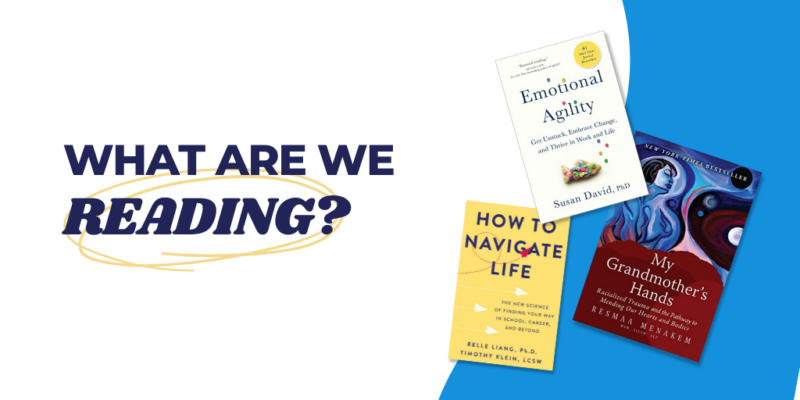This is Part 2 of a 2-part series
“Not everything that is faced can be changed, but nothing can be changed until it is faced.”
James Baldwin
What’s keeping you from finding your purpose?
In Part 1 of this 2-Part series, I discuss how discovering your purpose is a vital part of spiritual health and creating a meaningful life.
It’s common for people to feel like they don’t have a life’s purpose. For some, not pinning down a purpose might even be considered a value – to simply experience life as it comes. For others, for personal or systemic reasons, they feel it’s impossible to explore their purposes. It’s also common for people to live into other people’s expectations for their lives, or to live into the responsibilities they have. It might even feel like a luxury to truly explore your deepest desires and gifts.
I know from my many years of research on this subject that a sense of purposelessness can lead to prolonged periods of loneliness, confusion, searching, and a sense of languishing. During times of uncertainty and stress – big life changes or unexpected losses – trying to find purpose might feel overwhelming or point to another place where we fall short. Most of us want to stand for something and pursue a life that is meaningful. All of us need to feel that we matter to others, and purposeful relationships and endeavors are key ways to reinforce our “mattering.” What gets in the way, then?
Fear can get in the way – the trouble with our brain’s Default Mode Network
Our fears can impede finding purpose. Fear of change, fear of disappointing others, fear of our limitations, or fear of getting hurt. Fear is a funny thing. Our brains are hardwired for it. Fear is a natural protection device and serves as a trigger for the human defense system. Feelings of fear activate our minds and bodies to get out of harm’s way. Extreme fear prompts an autopilot-like response, and our bodies generate the necessary physiological changes, like the production of adrenaline, leading to focused attention, increased coordination, and quicker thinking.
The human brain has something called the Default Mode Network (DMN), which is always on and part of its job (along with other systems in the brain) is to be ready to detect and immediately respond to threats. For those who have experienced trauma, the DMN sits on high alert, anticipating threats all around. For some the DMN kicks into an overactive state where the mind replays worries over and over. Our brains can settle into this biological “fear” response, and as a result our minds become less flexible and function more rigidly which might involve rumination, hyper self-focus, and overgeneralization of threat. When anxiety sets in, a person’s purview becomes narrower, and the brain can get stuck in an “anxious mode.”
In this state we become preoccupied with our own survival (and that of those closest to us). We can become habituated into a reactive stance to life—and a posture of just getting by. This anxious state limits our capacities to imagine and dream and our abilities to be concerned and empathetic with others.
Anxious brains are rigid brains – the beliefs and certainties that hold us back
Rigidity and reactivity can often cause us to hold onto ideas about ourselves and others that we think are protecting us, but they get in the way of the psychological capacities that we need to thrive–to live and grow with and for others, and for a higher purpose. We can become overly certain about our beliefs, and our thoughts keep us stuck. We might say things like…
- I’m too old (or too young) to make a change.
- It’s easier to just do what I know.
- I’m not qualified for that position because I need more training and/or education.
- My family will be unstable and unsupported if I go back to work (or change jobs, or stop working, or go into ministry).
- I’m too overwhelmed to consider anything or anyone else.
- God can only use me in certain places.
- If I work hard enough, I’ll be able to figure this out.
Changing our minds: Making meaning to override anxiety
We can become habituated into patterns of surviving rather than thriving. For some of us to move into a thriving mode, our DMNs need a “remodel.” Research has demonstrated that when people internalize beliefs that are truly meaningful to them, they can actually modify the activity of their DMN. With practice the default mode reorganizes into a Meaning Network (1). Research by neuroscientist Mary Helen Immordino-Yang at USC has demonstrated that beliefs become meaningful when people reflect on their beliefs about the world and how they understand themselves and others in the context of those beliefs. Meaningful beliefs can then become incorporated into a person’s identity. For example, when someone believes that being vegan is important and meaningful, they are more able to sustain that conviction, and the actions that go with it, when they consider, and are inspired by, the potential implications for themselves (e.g., health) and the world (e.g., environment). When we have a cohesive sense of meaning and values in our lives, these ideals can help transform an anxiety-oriented system into a meaning and purpose-making system. When our default mode shifts from being reactive and driven by fear, to one that is motivated by meaning, we can more fully identify and pursue purpose.
Our religious and spiritual traditions provide rich sources of meaning and values, and communities of practice to live them out (2, 3). Still for many of us it is hard to hold onto the big picture. We struggle to make sense of the idea that life’s difficulties make us stronger and that a loving God (or higher power) is working in our lives. I find myself wondering why so many of us with rich religious traditions struggle with believing we have value, no matter what our purposes or levels of success.
Most Christians are familiar with the phrase, “perfect love casts out all fear” (1 John 4:18). The belief that we are loved – and are capable of offering love – provides important meaning that we need to rewire and live into our purposes. Love helps us make sense of the world, and understand that we matter, and yet, the daily grind (and loneliness and sometimes despair) makes the love of God feel unreachable.
What can you do?
The importance of Agility- the 5 As of Agility
…”we are continually learning about our purpose as we move through life, whether that is intentional study or through our interactions with the world and people we encounter. Purpose is not discovered in its completed state.” – Damon
Because life is full of ups and downs, and we will always face disruptions, we need to tools to develop a more agile approach to finding purpose. Ultimately, we want to tap into what matters most to us, and our sources of joy and love tell us a lot about what matters to us. Practices like the 5 A’s of Agility help us become more aware of our embodied emotions and our values so that we can adjust, regulate, and align to what matters through life’s many challenges.
The importance of Rest
Dr. Cynthia Eriksson points out, we might need to give our nervous systems a break–from stressors around us and even from news, technology, and the fast paced lives we often lead. We benefit from taking the fear-producing influences that we can control out of the picture for at least short amounts of time. There are psychological reasons for sabbath, as well as spiritual.
The importance of Relationships
We need loving relationships—whether with our spouse, family, friends, colleagues, or support group. We need to experience that we matter; we need actual support from others. We must be intentional about this, but it doesn’t mean adding people (or stress) to our lives. It means cultivating intimacy with those nearest and dearest to us. It means having a loving and open posture as we go through our days. It also means letting people know that they matter. If you’ve had a bad day, tell someone how important they are to you – and mean it. Knowing how vital relational support is might be just the thing to help us override fears and reach out to connect. Relationships grow as we nurture them, and we can engage in spiritual and relational practices that connect us to love.
The importance of Transcendent Love
God and the transcendent should be a source of love. Unfortunately, for some, whether because of bad theology or because of lived experience, God is not always equated with love. My third recommendation is to cultivate beliefs and daily practices that create connection to a source of invigorating love. Spend time meditating on your favorite scriptures that reinforce God’s love for you. Create a short list of go-to passages from scripture or favorite authors (I have personally cherished Henry Nouwen’s Life of the Beloved (4) and The Inner Voice of Love) that you can savor and allow to sink in. The belief that we are loved lessens our preoccupation with fear. The experience of being loved, helps us feel safe, and seen, and known. The practice of intentionally offering love to others is something we can do – even when we don’t feel loving. Offering love grows our capacities to believe in and connect to our source of unconditional love, and ultimately we can discover ourselves and our purposes in the context of love.
(1) Immordino Yang, M. Emotion, Sociality, and the Brain’s Default Mode Network: Insights for Educational Practice and Policy, 2016, DOI:10.1177/2372732216656869
(2) King, P. E., Baer, R. E., & Greenway, T. S. (in press). Theological perspectives on beliefs and communities of practice: Virtue systems as an integrative approach for psychologists. In M. D. Matthews & R. M. Lerner (eds. Multidisciplinary Handbook of Character Development Vol 1. Conceptualizing and Defining Character Virtues. Routledge, an imprint of Taylor & Francis.)
(3) King, P.E., Mangan, S., & Riveros, R. M. (2022). Religion, spirituality, and youth thriving: Investigating the roles of the developing mind and meaning-making. (p. 263-277) In W. Davis, E. Worthington, & S. Schnitker (Eds). Handbook of Positive Psychology, Religion and Spirituality. New York: Springer.
(4) Henry Nouwen, Live of the Beloved, 1992 https://henrinouwen.org/read/life-of-the-beloved/
Continue Exploring

Joy
Life Off Autopilot (Part 1): The Power of Purpose
Many go through the motions, feeling like there must be something more. To become more purposeful, look to joy for insight.

Blog
Spring 2023: What We’re Reading About Purpose
Atomic Habits: Tiny Changes, Remarkable Results by James Clear Why we like this book: James Clear offers concrete steps we all can take to change our habits for more purposeful living. If you have trouble making changes in your life and have goals you want to achieve, this book provides a framework for how to get results. The trick is to think in baby steps. My Grandmother’s Hands: Racialized Trauma and the Pathway to Mending Our Hearts and Bodies by Resmaa Menakem Why we like this book:…

Meaning
Meaning-Making (Part 1): The Power of a Meaning-Making Mindset
The practice of meaning-making involves exploring our belief systems, especially our beliefs around spirituality, which offer a distinct and powerful role in making meaning.

